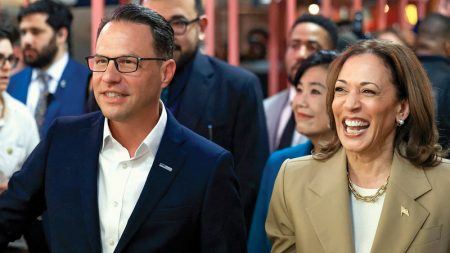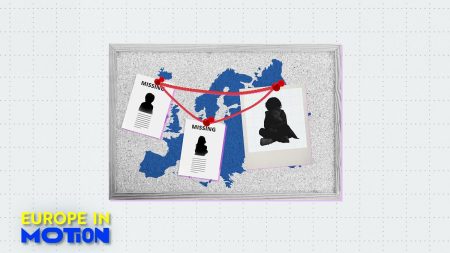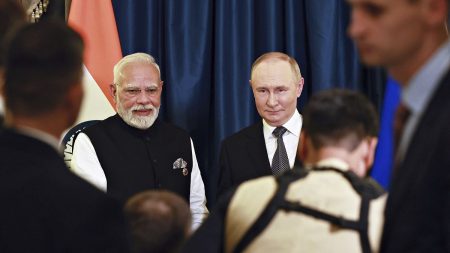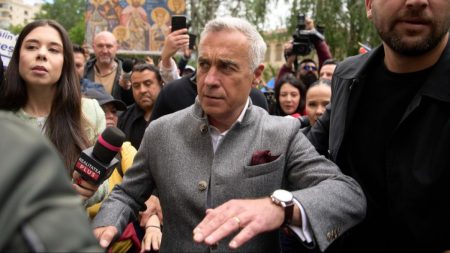Summarize this content to 2000 words in 6 paragraphs in Arabic
A Cypriot, a Czech, a Frenchman and a Spaniard with diverse backgrounds, ideologies, and motivations — all social media stars set to join the European Parliament.
ADVERTISEMENTFollowing the European elections earlier in June, the new European Parliament is about to gather fresh and known faces alike.Electoral surprises and the extra 15 seats — expanding the number of MEPs from 705 to 720 — will see lawmakers across the political spectrum get their shot at deciding the direction of the union’s policies over the next five years.Some of them happen to be true 21st-century products, rising to political fame by means of a persuasive and sometimes edgy online presence. While the exact composition of the new Parliament still remains uncertain, as political parties still need to confirm their lists, Euronews profiles four freshly elected MEPs who were all social media influencers before becoming politicians. Fidias PanayiotouBetter known by the mononym Fidias, 24-year-old Cypriot Panayiotou openly admits to knowing nothing about politics or the European Union and to having never voted. Yet he was elected third in Cyprus as an independent with an impressive 19.4% share of the vote. Among his most viewed videos are “I Hugged The World’s Top 100 Celebrities” (14 million views), “I Spent 10 Days In The Airport For Free” (five million views), and “I Spent Ten Days In a VR Headset” (5.7 million views). His 382 videos on YouTube have amassed him 2.62 million subscribers. However, the Cypriot YouTuber has not escaped controversy. An October 2023 video titled “I Travelled Across Japan For Free” outraged his audience, who judged his behaviour disrespectful. The video featured him begging locals, evading ticket inspectors, sneaking into a five-star hotel without paying and eventually — perhaps inevitably — winding up at a police station. He later apologised. A few months later, in 2024, he announced his candidacy for the European Parliament in a video on a secondary YouTube channel in Greek, his mother tongue. He said that he didn’t seek election so much as to motivate young people to get involved in politics. It is still unclear whether he will join a political party in the European Parliament or remain unaffiliated. Filip TurekTurek is a complex character. The Czech national MEP is simultaneously a car enthusiast, entrepreneur, author and influencer, but has also been linked to Nazi paraphernalia. Having lived “a thousand lives” as the blurb for his autobiography claims, Turek started out as a graphic design student, later studying law in Prague before pursuing his passion for motorsport, becoming a professional racing driver from 2015 to 2018. He has a penchant for collecting luxury cars and firearms. In 2022, Turek ventured into politics, becoming a political commentator for the Czech outlet VOX TV. His libertarian views, fierce opposition to the EU, especially its green policies, and provocative comments about Ursula von der Leyen and other female politicians quickly garnered attention. More notoriously, during his campaign, photos and interviews suggesting neo-Nazi affiliations resurfaced. He was seen performing a Nazi salute from a car, wearing a helmet with the symbol of the Greek neo-Nazi group Golden Dawn, and in 2016, he described himself as a collector of Nazi artefacts. However, Turek denies any connections to neo-Nazi movements, he explains his gestures by his “stupid dark humour”. Despite the controversies, Turek’s political stance did not prevent him from a strong showing in the elections. His party, Přísaha and Motorists, secured 10.3% of the vote, earning two seats in the European Parliament and surpassing the governing parties STAN and Piráti, which received 8.7% and 6.2% respectively. When interviewed by Czech media outlet Seznam Zprávy about his plans in Brussels, Turek suggested that joining the European Conservatives and Reformists (ECR) group would be the logical choice, though he noted that negotiations are ongoing and nothing is yet confirmed. He appears likely to keep his promise of arriving at the first plenary session of the European Parliament in ‘a very powerful and fast car with a huge carbon footprint’. Alvise PérezA surprise candidate, 34-year-old Spaniard Alvise Pérez, was elected along with two of his running mates with 4.58% of the votes. Up to now, aside from being popular on social media among conspiracy theorists, he remains largely unknown to the broader Spanish public. Despite his controversial reputation, his career began relatively conventionally. ADVERTISEMENTThe young man, whose real name is Luis Pérez Fernández, studied Political Science in Spain before dropping out and enrolling at the University of Leeds in England. There, he became involved with the youth wing of the Liberal Democrats before abandoning his studies in December 2018 to move to Valencia and become Chief of Staff for Toni Cantó, a deputy in the Valencian Regional Parliament for Ciudadanos (centre-right/liberal). Less than a year later, everything changed when he made Islamophobic and sexist remarks in posts on Twitter. He was replaced in November 2019 following these incidents. He then moved to Madrid and reinvented himself as a “political influencer”. He became known for his critiques of the political establishment and gained notoriety during the Covid-19 pandemic for his outspoken anti-vaccine and anti-lockdown views. This controversial stance led to a temporary suspension of his Twitter account for spreading misinformation. However, he denies lying or the qualification of a “conspiracy theorist”. In translation: “According to the media, ‘no one was ever forced to get vaccinated,’ and according to Pedro Sánchez, ‘there was never any lockdown.’ Yet, here, they label Alvise Pérez as crazy for stating what everyone knows. It’s surreal that he’s the only one speaking out about all this, and they call him a ‘conspiracy theorist’.”Another pivotal moment in his career was his interview with Luis Rubiales, the president of the Spanish Football Federation, who had infamously kissed a national player without consent. Pérez used the interview to attack feminism, which ultimately resulted in the permanent deletion of his Twitter account. In October 2023, he again drew public attention by inciting violent protests against the Sánchez government and its proposed amnesty law. ADVERTISEMENTAt the beginning of 2024, Pérez’s political career took a turn when he founded “Se Acabó la Fiesta” (The Party is Over), a right-wing, anti-establishment group, and announced his candidacy for the 2024 European elections. He claimed to be running solely to gain parliamentary immunity in an effort to protect himself against various legal claims he still faces for defamation and spreading false information. Andreu Casero-Ripollés, Professor of Journalism and Political Communication at the Universitat Jaume I, told Euronews that Pérez is a candidate without clear electoral pledges. “His agenda is primarily about fighting against corruption, challenging traditional parties, and promoting a far-right platform associated with ultra-Catholic, anti-abortion, and anti-immigration stances,” Casero-Ripollés explained. Pérez positions himself as a champion of the people, opposing political and media elites, which he disparagingly refers to as “media information whores”. Pérez’s campaign, partly funded each month by his 655 paid Patreon members, was conducted exclusively on social media, where he shared content with his 538,000 Telegram followers and 950,000 Instagram followers. His messaging often mirrored that of populist leaders such as Argentina’s libertarian president Javier Milei and El Salvador’s Nayib Bukele. Bukele, in particular, inspires Pérez’s advocacy for stringent security measures that critics argue undermine the rule of law. ADVERTISEMENTOn 9th June, Pérez secured the support of 796,560 Spaniards. However, in a surprising move, he announced on Telegram that he would not be travelling to Brussels. “Spaniards are not represented by abandoning their country”, he declared. It remains unclear how he intends to carry out his responsibilities as an MEP from Spain. Read more about Alvise Pérez in a profile by Euronews’ Jaime Velazquez. Jordan BardellaReducing Jordan Bardella to the status of an influencer would, of course, be a mistake. But did you know that before joining the National Rally, he attempted to become a YouTuber? This was revealed in an investigation by Le Monde, published on 2 June. Starting in 2012, Jordan Bardella was posting videos on YouTube, sharing his best shots in the video game Call of Duty to his 3,000 subscribers under the pseudonym MrJordan9320 — a number referencing the postal code of the city of Saint-Denis in the Paris suburbs. Following this revelation, internet users managed to dig up these videos, which have since been deleted, from the depths of the internet. On his channel, as well as on a secondary one named ActuCritiqueHD (HD Critical news, in English), he mostly talked about video games but would also criticize other content creators.ADVERTISEMENTLe Monde also claims that he was very active under the same pseudonym on one of the forums of the site JeuxVideo.com, a very popular exchange platform for the gaming community. He reportedly posted over 1,000 messages with his account. Even more surprising, internet users discovered his participation in a voice-over competition in 2012. Twelve years later, this ability to master the codes of social media enabled him to amass 1.6 million followers on TikTok and rank most popular in the European elections among French youth. The legislative elections on 30 June will be crucial in determining if MrJordan9320 will become Monsieur le Premier Ministre. Social media: Youth-engaging or democracy-crushing?”The parties should take it as a warning that they must modernise and listen to the people,” Cypriot YouTuber Fidias told state broadcaster CyBC, when elected, of the role of social media. “Traditional political actors downplay the importance of the success of Albert Perez and claim this is an anomaly,” according to Professor Casero-Ripollés, who believes the political establishment underestimates the role of political influencers. Their influence is only likely to spread, he believes, as such outsiders are gaining influence among those aged 40 and younger. Casero-Ripollés elaborated on how different social media platforms cater to different audiences and age groups. Older users are more likely to be on Facebook, for example, while younger prefer TikTok. ADVERTISEMENT”Facebook, Instagram, or Twitter traditionally generate weak ties because it’s very open; people come and go really easily. Messaging apps like WhatsApp or Telegram generate strong ties because they are private channels, and so they connect in a more personal way to other people.” He noted that political influencers are particularly skilled at combining all these platforms effectively. The professor’s research indicates that political influencers excel in mobilising public anger and political grievances from internet users critical of the established system, parties, and government. They transform these feelings into coherent and appealing messages, conveyed in the familiar language of social media, which they master. This ability distinguishes them from traditional politicians.
rewrite this title in Arabic From online influencer to MEP: Meet the EU’s most connected lawmakers
مقالات ذات صلة
مال واعمال
مواضيع رائجة
النشرة البريدية
اشترك للحصول على اخر الأخبار لحظة بلحظة الى بريدك الإلكتروني.
© 2025 جلوب تايم لاين. جميع الحقوق محفوظة.














